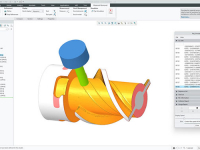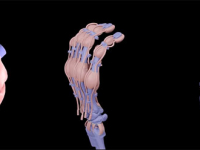
January 2, 2020
High Performance Computing (HPC) is crucial to organizations across industries, making it possible to drive innovation and revenue. While adoption of cloudbased HPC solutions is increasing, misconceptions about their cost, security and performance persist.
It’s crucial to challenge these beliefs and break down common barriers to cloud-based HPC to prevent organizations large and small from being held back by outdated, inaccurate information. HPC on AWS, powered by Intel® Xeon® Scalable processors, offers the most elastic, scalable cloud infrastructure to run HPC applications, and the range of services makes it easier than ever to get started quickly, securely, and cost-effectively.
High Performance Computing (HPC) has transformed industries, from finance and genomics to autonomous driving and seismic imaging. The demand for these computing resources continues to rise, as organizations of all sizes strive to keep pace with innovation in the marketplace.
In this dynamic environment, enterprises that turn to cloud-based HPC solutions are positioned to be more competitive and drive greater ROI. According to Hyperion Research in their study, “Cloud Computing Comes of Age,” the proportion of all HPC sites that use public clouds has quintupled, from 13% in 2011 to 74% in 2018. In a 2019 Hyperion study, 40% of HPC cloud users believe all their HPC jobs could be run in the cloud, meaning there’s substantial headroom for growth.
Cloud computing is helping to democratize High Performance Computing by putting powerful computational capabilities in the hands of researchers, engineers, and organizations who lack access to on-premises infrastructure or need more HPC resources to thrive. Its flexibility and scalability offer virtually unlimited capacity, eliminating wait times and long job queues. Access to new and evolving services and applications make it easy to evolve and modernize workflows, like incorporating machine learning with HPC.
With HPC in the cloud, organizations only pay for the capacity they use, and there’s no risk of on-premises infrastructure becoming obsolete or poorly utilized. In addition, cloud-based services enable innovation without constraints by delivering faster results and improved flexibility. AWS gives organizations the power to create HPC clusters on demand, instead of waiting for equipment to be built—helping drive business insights and organization productivity.
Despite its advantages, some organizations remain hesitant to move their HPC workloads to the cloud. Whether it’s overall cost, security, data transfer or performance, there are several perceived barriers to cloud-based solutions that prevent these teams from achieving their true potential. By exploring these barriers and demonstrating how cloudbased HPC answers each objection, this paper provides a path for organizations to begin realizing the benefits of cloud-based HPC.
Fill out the information below to download the resource.
Latest News








